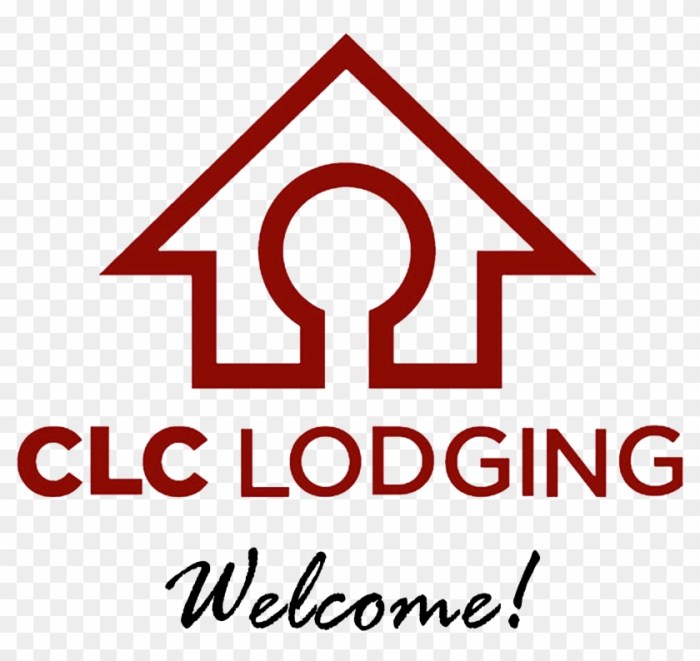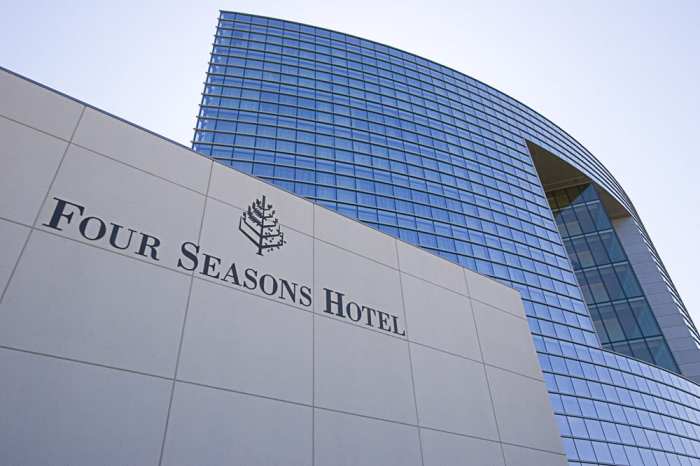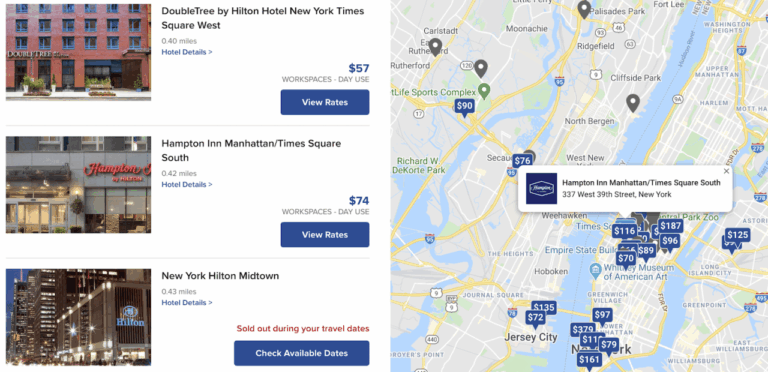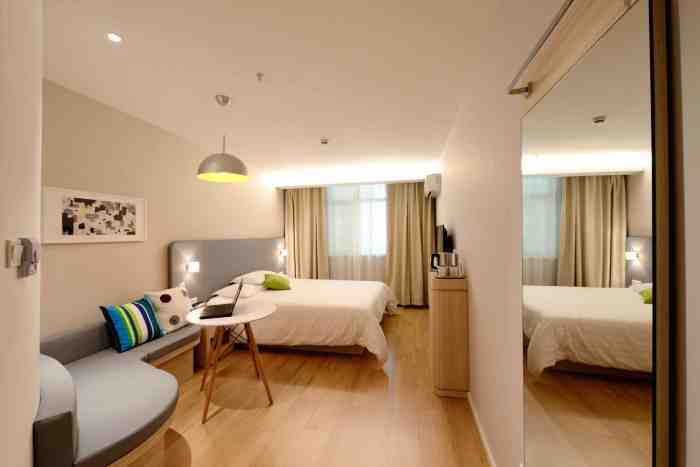Business Hotel Discounts Your Guide to Savings
Business hotel discounts are crucial for cost-effective business travel. This guide explores various types of discounts, from corporate rates to group deals, and delves into strategies for securing them. We’ll examine negotiation tactics, the role of travel agents, and online platforms to maximize your savings. Understanding eligibility criteria, benefits, and drawbacks is key to making informed decisions. Finally, we’ll analyze the impact of seasonal fluctuations, economic conditions, and competitor pricing on discount availability.
The discussion encompasses evaluating discount value against alternative accommodations, leveraging discounts for additional perks, and integrating discounts into your travel budget. Effective tracking and management systems are also essential for efficient travel planning. Understanding the terms and conditions is critical for avoiding any surprises. Case studies of successful and less successful discount utilization will illustrate practical applications and highlight key takeaways.
Defining Business Hotel Discounts
Business hotel discounts are crucial for optimizing travel budgets and enhancing the overall business travel experience. They offer significant savings for companies and individuals undertaking various business trips, enabling more cost-effective accommodations. These discounts often come in various forms, each tailored to specific situations and needs.
Understanding the different types, eligibility criteria, and factors influencing their value is vital for making informed decisions and maximizing the return on business travel investments. Careful consideration of these aspects can lead to substantial cost savings and improved travel experiences for both businesses and employees.
Types of Business Hotel Discounts
Various types of business hotel discounts cater to different business travel scenarios. These discounts are often designed to encourage repeat business, reward loyalty, or incentivize larger bookings. Corporate rates, negotiated rates, and group discounts are common examples.
Corporate Rates
These rates are negotiated between a hotel and a company, typically providing discounted room prices for employees or guests associated with that company. These rates often include specific terms and conditions. For example, a large technology company might negotiate a corporate rate that includes a complimentary breakfast for all guests staying at the hotel.
Group Discounts
These discounts apply to a pre-determined number of rooms booked for a specific event, such as a conference, seminar, or training session. The hotel often provides special packages, amenities, and potentially discounted rates for the entire group. For instance, a marketing firm hosting a large client conference could negotiate a group discount that covers not only room rates but also a dedicated meeting room and catering.
Negotiated Rates
These are individual deals struck between the hotel and a specific business, often based on volume or a long-term agreement. These rates can be more complex and require careful negotiation to ensure mutual benefit. For example, a financial consulting firm could negotiate a discounted rate based on a long-term contract with a hotel, potentially including exclusive access to certain amenities.
Business Travel Scenarios Benefitting from Discounts
Many business travel scenarios can leverage these discounts. For example, a company holding an annual sales conference could benefit from group discounts. Likewise, a sales representative on a long-term business trip could leverage corporate rates. These discounts can prove highly advantageous for conferences, trade shows, or company retreats.
Eligibility Criteria for Discounts, Business Hotel Discounts
Eligibility criteria vary depending on the specific discount program. Typically, companies need to be pre-approved by the hotel. For corporate rates, this often involves a contractual agreement. Group discounts may have minimum room requirements or booking deadlines. Negotiated rates might involve long-term contracts or substantial booking volumes.
Comparison of Discount Programs
Each discount program has its own set of benefits and drawbacks. Corporate rates often provide consistent, predictable savings, while negotiated rates may yield greater savings but require a more substantial commitment. Group discounts offer savings for larger bookings but require meeting specific group size criteria.
Factors Influencing Discount Value
Several factors influence the value of a business hotel discount. These include the negotiated rate, the length of stay, the time of year, and the hotel’s location. A higher discount percentage during off-season periods, for example, might outweigh a lower discount percentage during peak season.
Table of Discount Types and Features
| Discount Type | Typical Features |
|---|---|
| Corporate Rates | Fixed percentage off, potential complimentary amenities, and exclusive access to online booking portals. |
| Group Discounts | Percentage off, free nights, complimentary breakfast, and potential use of a dedicated meeting room. |
| Negotiated Rates | Variable percentage off, potential complimentary amenities, and long-term contracts. |
Strategies for Obtaining Business Hotel Discounts

Source: luxurylifestyleawards.com
Securing favorable hotel rates for business travel is crucial for optimizing budgets. Effective strategies involve a combination of negotiation tactics, leveraging intermediaries, and utilizing various online resources. This section delves into proven methods to achieve substantial discounts for your business accommodations.
Negotiation tactics are paramount for securing better rates. Understanding the dynamics of hotel pricing and demonstrating a willingness to commit to a block of rooms over a specific period can significantly influence the final price.
Negotiation Tactics for Better Rates
Negotiating effectively involves understanding the hotel’s pricing structure. Factors like room type, amenities, and the duration of stay all influence the rate. A clear understanding of these factors allows for more informed and persuasive negotiation. Presenting a compelling case that aligns with the hotel’s interests, such as a significant booking volume or a mutually beneficial long-term partnership, can greatly improve your chances of securing a discount. Proposing alternative payment terms or room configurations, where feasible, can also be explored as part of the negotiation process. Flexibility in dates and room choices can be a valuable tool in obtaining better rates. Demonstrating a commitment to the hotel’s profitability by providing specific dates and quantities, while maintaining the option to adjust, showcases your business acumen.
Role of Travel Agents in Securing Business Hotel Discounts
Travel agents often possess extensive industry knowledge and established relationships with hotels. Their expertise can be instrumental in securing significant business hotel discounts. Agents can leverage their network and negotiating skills to secure competitive rates that might be difficult for individual travelers to obtain. They often have access to exclusive deals and packages, providing a valuable service for securing favorable business hotel rates.
Strategies for Utilizing Online Discount Platforms
Numerous online platforms offer business hotel discounts. These platforms often aggregate deals from various hotels, making it easy to compare prices and find the best rates. Thorough research and comparison of rates across different platforms is key to identifying the most favorable options. Utilizing multiple comparison tools allows for a more comprehensive evaluation and discovery of potential discounts. Regularly checking these platforms for promotions and deals ensures you stay updated on the most current offers.
Leveraging Loyalty Programs for Potential Business Hotel Discounts
Loyalty programs are often overlooked opportunities for business travelers. These programs can accumulate points and miles over time, potentially leading to discounted rates on future stays. Understanding and actively participating in loyalty programs can generate substantial savings over the long term. This can often be done in combination with negotiation tactics, as a combined approach can further reduce the costs of accommodation. It is important to research and choose loyalty programs that align with your travel patterns and needs, and to ensure the benefits are worth the participation effort.
Online Resources for Business Hotel Discounts
| Resource Type | Description | Example |
|---|---|---|
| Hotel Comparison Sites | Websites that aggregate hotel listings from various sources, allowing for easy comparison of prices and amenities. | Booking.com, Expedia, Kayak |
| Travel Booking Platforms | Platforms that facilitate the booking of travel arrangements, often including business hotel options. | Ctrip, Hotels.com, Agoda |
| Industry-Specific Travel Portals | Websites focused on business travel, offering exclusive deals and negotiated rates for corporate travelers. | Concur, American Express Meetings & Events |
Building Relationships with Hotel Representatives
Building strong relationships with hotel representatives can be highly beneficial for obtaining better rates. Establishing rapport through consistent communication and demonstrating a commitment to the hotel can result in more favorable negotiation outcomes. Regular interaction and appreciation of the hotel’s services foster positive relationships, leading to potentially more favorable negotiation results. Understanding the hotel’s business and needs can strengthen the basis of these relationships and increase the likelihood of securing discounts.
Maximizing the Value of Business Hotel Discounts

Source: medium.com
Leveraging business hotel discounts effectively is crucial for optimizing travel budgets and maximizing the return on investment for corporate travel. A well-structured approach ensures that these discounts translate into real savings and enhanced travel experiences. Careful evaluation of the discount’s true value against alternative options is key to making informed decisions.
Understanding the nuances of these discounts, including terms and conditions, allows for strategic planning and efficient utilization of the savings. This involves more than just booking the cheapest room; it necessitates a holistic approach to maximizing the value of the discount within the context of the overall business travel budget.
Evaluating the True Value of the Discount
To truly understand the value of a business hotel discount, it’s essential to compare it against the costs of alternative accommodations. Consider factors such as the room type, amenities, location, and the potential for additional savings. A seemingly small discount might prove more valuable if it’s coupled with other benefits or if the alternative accommodations lack the features needed for business productivity. This comparison necessitates a thorough review of the pricing structures of various hotels, considering the discount’s impact on the overall cost.
Leveraging Discounts for Additional Perks
Many business hotel discounts offer additional perks and amenities. These might include complimentary breakfast, airport transfers, or access to business centers. Carefully reviewing the terms and conditions of the discount is crucial to identify and leverage these additional benefits. For example, a discount might include complimentary Wi-Fi, which could prove valuable for employees needing to work remotely. This should be factored into the overall evaluation of the discount’s value.
Integrating Discounts into Business Travel Budgets
A well-structured business travel budget should include provisions for hotel discounts. This allows for more accurate estimations and helps in aligning travel plans with budgetary constraints. Allocating a specific portion of the budget for hotel discounts, especially if significant, allows for the appropriate scaling of other budget categories. It also helps in tracking the actual cost of travel, allowing for real-time adjustments based on the discount’s impact.
Tracking and Managing Discounts
Maintaining a systematic approach to tracking discounts is vital for efficient travel planning. Use a spreadsheet or dedicated travel management software to record the details of each discount, including the hotel, dates, and the specific terms and conditions. This structured approach facilitates the efficient identification of suitable discounts and allows for easy comparison across various hotel options. This data-driven approach improves travel planning efficiency.
Comparative Analysis of Hotel Costs
This table illustrates the cost comparison of various hotel options, factoring in the business hotel discount. It provides a clear overview of the potential savings associated with the discount.
| Hotel | Room Type | Original Price | Discounted Price | Savings |
|---|---|---|---|---|
| Hotel A | Standard Room | $250 | $200 | $50 |
| Hotel B | Executive Suite | $400 | $300 | $100 |
| Hotel C | Standard Room | $220 | $180 | $40 |
Understanding Terms and Conditions
A thorough understanding of the terms and conditions associated with business hotel discounts is crucial. This includes the duration of the discount, the required booking lead time, any blackout dates, and restrictions on room types. This ensures that the discount is utilized in a way that complies with all stipulations. A comprehensive review of these conditions will avoid unexpected costs and ensure the best possible value from the discount.
Factors Influencing Business Hotel Discounts
Business hotel discounts are not static; they are influenced by a variety of dynamic factors. Understanding these influences allows businesses to strategically plan their travel arrangements and maximize their return on investment. These factors range from broad economic trends to specific event schedules, ultimately impacting the availability and structure of discounts.
A multitude of variables interact to determine the price point for business hotel accommodations. These variables, from market demand to competitor pricing, directly impact the final discount offered. Understanding these factors is crucial for obtaining favorable rates and ensuring a cost-effective travel strategy.
Seasonal Fluctuations
Seasonal fluctuations significantly impact business hotel discount availability. Demand for hotel rooms often peaks during specific periods, such as holidays, major conferences, and popular travel seasons. Conversely, off-peak periods often see a decrease in demand, allowing hotels to offer more attractive discounts to attract bookings. For example, a hotel in a ski resort town might offer significant discounts during the spring and summer months, while increasing rates during the winter season due to high demand for ski trips.
Economic Conditions
Economic conditions play a pivotal role in business hotel discount offers. During periods of economic downturn, hotels might offer more aggressive discounts to stimulate bookings and maintain occupancy levels. Conversely, in a robust economy, hotels may have less incentive to offer substantial discounts, given higher demand and potential for higher rates. For example, during the 2008 recession, many hotels offered significant discounts to attract customers and stay afloat, whereas a thriving economy in 2023 might see less reliance on large-scale discounts.
Hotel Occupancy Rates
Hotel occupancy rates directly influence discount structures. Hotels with high occupancy often have less need to offer deep discounts, while hotels with lower occupancy rates are more likely to provide attractive incentives to fill rooms. This is a direct reflection of the supply and demand dynamics in the market. For instance, a hotel in a less-popular destination area may offer substantial discounts to maintain occupancy rates during the off-season.
Demand and Supply
The balance between demand and supply is a key determinant of discount levels. High demand for rooms coupled with limited availability often results in fewer discounts, while low demand and high availability often correlate with greater discounts. This principle reflects the fundamental economic concept of supply and demand. A popular hotel in a major convention city during a busy conference season might have little incentive to offer discounts, as demand far exceeds supply.
Competitor Pricing
Competitor pricing significantly impacts discount offers. Hotels closely monitor the pricing strategies of their competitors to maintain competitiveness. If competitors are offering significant discounts, a hotel may also offer similar discounts to maintain market share. For instance, if a competitor hotel in the same area is offering a package deal with a significant discount, other hotels in the vicinity may respond with similar offers to remain competitive.
Specific Events or Conferences
Specific events or conferences significantly influence discount availability. Events like major conventions or trade shows create a surge in demand for hotel rooms. In response to this increase in demand, hotels often adjust their pricing strategies, offering discounts to accommodate the influx of attendees. For instance, a hotel near a major technology conference will likely offer discounts tailored to the event’s attendees, with incentives for large block bookings.
Illustrative Case Studies of Business Hotel Discounts
Business travel programs often rely heavily on securing favorable hotel discounts. These discounts, when effectively managed, can significantly reduce travel costs and improve the overall profitability of business trips. This section provides case studies to illustrate successful and less successful approaches to negotiating and utilizing these discounts.
A Successful Discount Negotiation
A large tech company, “Innovate Inc.”, needed to host a major conference attracting 500 attendees over three days at a premier hotel in a bustling city. Their initial quote was substantial. Their dedicated travel manager, however, leveraged their substantial volume and the hotel’s desire for a long-term contract by emphasizing the potential for repeat business and a substantial commitment to the hotel. They presented a proposal for a tiered discount structure based on the number of rooms booked, resulting in a 20% reduction across the board. This negotiation demonstrates the importance of strategic planning, emphasizing the value of repeat business, and the power of negotiating based on volume and commitment.
Maximizing Business Travel Program Benefits
“Global Solutions,” a multinational corporation, implemented a robust business travel program that prioritized hotel discounts. Their program utilized a centralized booking platform that automatically applied negotiated discounts from various hotel chains. Furthermore, the program tracked usage patterns, allowing for analysis of booking frequency and location trends. By understanding these trends, they were able to negotiate better deals with preferred hotels and secure more favorable rates for frequently used locations. This strategy enabled Global Solutions to optimize their travel budget by ensuring maximum discount utilization and strategic allocation of travel funds.
Struggles with Discount Effectiveness
“Tech Solutions,” a rapidly growing startup, struggled to leverage business hotel discounts effectively. They lacked a dedicated travel manager and relied on individual employees to book accommodations, resulting in inconsistent discount application and missed opportunities. This ad hoc approach meant that negotiated rates weren’t always applied, leading to higher-than-necessary costs. They also didn’t track their spending, making it difficult to identify patterns or areas for improvement. This case highlights the importance of a centralized travel program and a dedicated resource to manage discounts.
Exceptional Discounts Secured by a Business Traveler
A seasoned business traveler for “Apex Industries,” recognized the potential for discounted rates even without a formal corporate travel program. This traveler built relationships with hotel staff and proactively sought out promotions and loyalty programs. They often found deals on last-minute bookings or off-season stays. This demonstrates that proactive engagement and a keen eye for deals can lead to significant savings, even for individuals.
Key Takeaways from Case Studies
| Case Study | Key Takeaway |
|---|---|
| Innovate Inc. | Strategic negotiation based on volume and commitment yields significant discounts. |
| Global Solutions | Centralized booking platforms and data analysis maximize discount utilization. |
| Tech Solutions | A dedicated travel manager and centralized booking system are crucial for effective discount utilization. |
| Apex Industries Traveler | Proactive engagement and seeking out promotions and loyalty programs can lead to substantial savings. |
Strategies Used in Case Studies
The successful case studies highlight several key strategies:
- Negotiation and Volume Discounts: Leveraging large volume bookings and commitment to establish a strong negotiation position with hotels.
- Centralized Booking Platforms: Implementing centralized booking platforms to automate discount application and track usage patterns for better negotiation.
- Dedicated Travel Management: Employing a dedicated travel manager or team to manage hotel discounts, track spending, and identify areas for improvement.
- Proactive Engagement and Relationship Building: Proactive engagement with hotel staff and utilization of loyalty programs can lead to significant savings, even without a corporate travel program.
Closing Notes
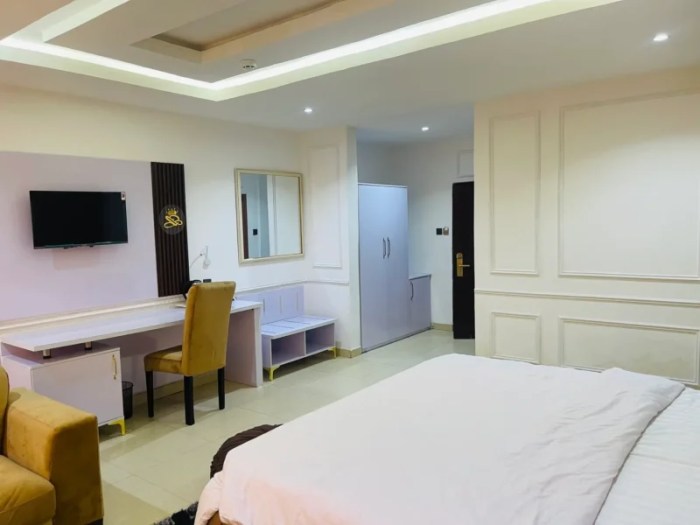
Source: vasttourist.com
In conclusion, securing business hotel discounts requires a strategic approach, blending negotiation skills, knowledge of resources, and careful evaluation of value propositions. By understanding the factors influencing discount availability and applying the strategies outlined in this guide, you can significantly reduce travel expenses while maximizing the benefits of business travel. Remember to always compare prices, evaluate terms, and understand your company’s policies. Ultimately, successful negotiation hinges on a thorough understanding of the market and your needs.
